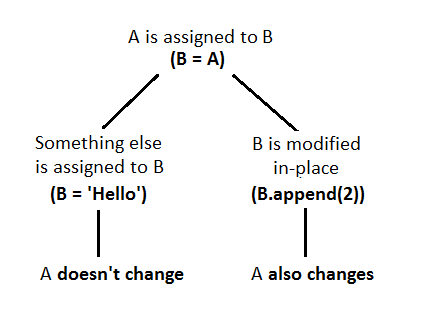Experimental_Python
Linear Regression
Example of how to make linear regression in python using scipy
Pickle
Stores python objects in files. Useful to save processed data or training coefs for CNNs.
Note: Files generated with pickle for python 3 are not backward compatible for python 2.7
Sample Generator Useful to generate more samples to train CNNs.
This application failed to start because it could not find or load the Qt platform plugin "xcb" in "".
Reinstalling the application may fix this problem. Abortado ('core' generado)
As the message says we need to reinstall the program, the issue here is which program we need to reinstall. This are the commands we need to run in order to fix this bug:
sudo /opt/anaconda3/bin/conda remove qt
sudo /opt/anaconda3/bin/conda remove pyqt
sudo /opt/anaconda3/bin/conda install qt
sudo /opt/anaconda3/bin/conda install pyqt
t="10" if 4 < 5 else "22"d = {'a':1, 'b':22, 'c':10}
print("Max val: {}".format(d[max(d, key=d.get)]))When there are several python versions in the same PC to specify which pdb should be used try:
python3 -m pdb <script_name>.py
# for python 2
python -m pdb <script_name>.pyhttp://effbot.org/zone/call-by-object.htm
http://effbot.org/zone/python-objects.htm
Here is an example on how python hides memory:
def dict_modifier(d, key):
d.pop(key, None)
sample_dict = {'some_key': 'some value'}
dict_modifier(sample_dict, 'some_key')
print(sample_dict) # {}The function dict_modifier removes a value form the dictionary passed to it, it handles the dictionary as a reference.
But python not always takes the arguments as references for example:
def adder(n):
n += 1
i = 1
adder(i)
print(i) # 1The primitives are not passed as references, but rather as copies.
python -m py_compile xpad_diag_helper.py
https://stackoverflow.com/questions/5751292/how-to-get-current-import-paths-in-python
The path locations that python cheks by default can be inspected in sys.path.
import sys
print sys.pathA static variable is a variable which is shared among all the instances of the class, if its
value changes, changes for all the instances. Also does NOT need an instance of the class
to exists.
For example:
class A:
static_variable = "I exist"
def __init__(self):
self.non_static_var = "I need an instance to exist"
print(A.static_variable)
print(A.non_static_var)Every object can access the static variable
class B:
shared_var = "I'm shared"
def __init__(self):
self.instance_only_var = "Im only for my object"
ib_1 = B()
ib_2 = B()
print(B.shared_var)
print(ib_2.shared_var)
print(ib_1.shared_var)
ib_2.shared_var = "catorce"
print(ib_2.shared_var)
print(ib_1.shared_var)
####
print(ib_2.instance_only_var)
print(ib_1.instance_only_var)
ib_2.instance_only_var = "only for ib2"
print(ib_2.instance_only_var)
print(ib_1.instance_only_var)'/bin/sh'[::-1].encode().hex()
'68732f6e69622f'When installing with pip --user the executable files go to the
path specified by:
python3 -m site --user-baseOn windows the scripts go to %USERPROFILE%\AppData\Roaming\Python\Scripts
python3 -c "from __future__ import print_function; from distutils import sysconfig; print(sysconfig.get_python_inc())"
- The Python interpreter is not thread safe, so multithreading doesn't actually work (https://wiki.python.org/moin/GlobalInterpreterLock)
- Python contains features that are known to just plain not work
- round doesn't actually round numbers. (https://docs.python.org/2/library/functions.html#round) The notion of rounding a base10 number is fundamentally a base10 operation. Why the hell would you try to do it in base 2?
- os.path.commonprefix doesn't actually return valid paths (https://docs.python.org/2/library/os.path.html#os.path.commonprefix)
- Python's regex engine is obtuse and slow (http://glennklockwood.blogspot.com/2012/04/revisiting-perl-and-python-speed.html)
- MAJOR changes between MINOR revisions (2.6, 2.7)
- subprocess.check_output
- the "with" statement
- MAJOR changes between 2.0 and 3.0, like redefining fundamental math operations (https://www.python.org/dev/peps/pep-0238/)
- Time doesn't work
- e.g., time.strftime("%Y-%m-%d %H:%M:%S", time.localtime(int(time.strftime("%s", time.gmtime()))))
- good luck trying to get a datetime.tzinfo object for the local timezone (http://stackoverflow.com/questions/1681143/how-to-get-tz-info-object-corresponding-to-current-timezone)
- is neither pass-by-value vs pass-by-reference
- programmer has to mentrally track the mutability of the type of object being passed around
- this, combined with Python's lack of strong typing, make this a really fragile way to program
